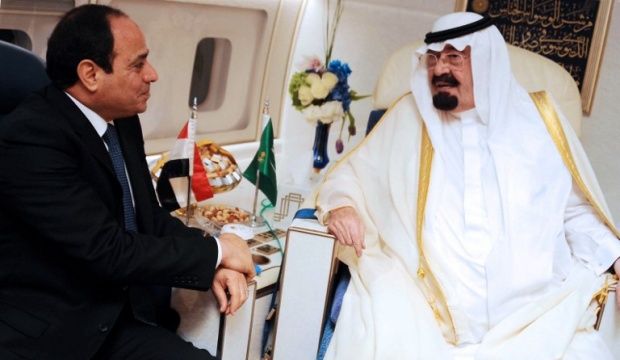The summit held by the Gulf Cooperation Council’s (GCC) in Riyadh last week has turned the page on the complex dispute between four of its members, leading to the return of the ambassadors of Saudi Arabia, the United Arab Emirates, and Bahrain to Qatar. The summit was followed by a significant statement in which the Custodian of the Two Holy Mosques King Abdullah Bin Abdulaziz appealed to the people and leadership of Egypt to back the agreement reached in Riyadh, a significant step along the path of Arab solidarity.
Cairo immediately gave its blessing to the Saudi Royal statement and the Egyptian presidency issued a statement which said it was “fully confident in the wisdom and far-sightedness” of King Abdullah, and that it “deeply appreciates His Majesty’s strenuous efforts on behalf of Arab and Islamic nations, along with his supportive stances [toward] Egypt,” Egypt’s State Information Service (SIS) reported.
The statement confirmed that Cairo will renew its promise of being a “home for all Arabs,” emphasizing its complete response to the sincere Royal call, “which represents a major step in the course of Arab solidarity.”
Since King Abdullah’s call was met with a swift response from Egypt and immediate backing from the UAE—which shows Abu Dhabi’s political wisdom—the question that now arises is: why not invite Egyptian President Abdel-Fattah El-Sisi to attend the forthcoming GCC summit in Doha as a guest of honor? Such an invitation would be tantamount to an official declaration of not only turning the page on the inter-Gulf dispute, but also healing the obvious rift among Arab countries, particularly since Egypt is not just part of the Arab world, but rather a home for all Arabs—and so it should be. Such an invitation would represent an official declaration of the entire Gulf’s support for Egypt. It is true that such an invitation will not end all disputes, nor will it heal all wounds, but it will be a step in the right direction. Egypt cannot be left behind, nor dispensed with. One cannot imagine the Arab world, particularly the Gulf, without Egypt. This is the disaster that the Muslim Brotherhood was about to cause during their brief period of rule in the country.
It is true that such an invitation will represent an extension to the Gulf custom of solving disputes in an emotional manner, but so be it. Emotions are part of the tapestry that links us with Egypt. What the Gulf needs today is to stand with Egypt, whose power is closely connected with that of the Gulf. Such a step would break the ice after four harsh years and serve as a precaution against the challenges both have to confront in the future, challenges that cannot be faced with strong ties between Egypt and the Gulf.
Inviting President Sisi to the Doha summit will not end all disputes, and a long road is still to be traveled. But such a gesture will strengthen communication and send a significant political message to everyone, Iran in particular, which is backing the criminal regime of Bashar Al-Assad. On the other hand, it will send a well-deserved message of appreciation and respect to all Egyptians, as well as a message to GCC nationals, to tell them that the coming days will hold a clearer vision than that of the past in terms of the affairs of the Gulf, Egypt and the Arab world. Of course, inviting President Sisi to the Doha summit will not be an act of charity or an award. Rather, it is an acknowledgment that tomorrow is unlike yesterday, a concept familiar to all rational people.

Trackbacks/Pingbacks